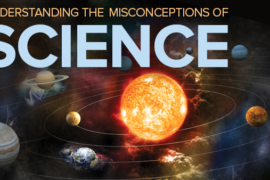
Rocket Science has become a byword in recent times for something really difficult. Rocket scientists require a detailed knowledge of the properties of the materials used in the construction of spacecraft; they have to understand the potential and danger of the fuels used to power the rockets and they need a detailed understanding of how planets and satellites move under the influence of gravity. Quantum physics has a similar reputation for difficulty, and a detailed understanding of the behavior of many quantum phenomena certainly presents a considerable challenge – even to many highly trained physicists.
The greatest minds in the physics community are probably those working on the unresolved problem of how quantum physics can be applied to the extremely powerful forces of gravity that are believed to exist inside black holes, and which played a vital part in the early evolution of our universe.
However, the fundamental ideas of quantum physics are really not rocket science: their challenge is more to do with their unfamiliarity than their intrinsic difficulty. We have to abandon some of the ideas of how the world works that we have all acquired from our observation and experience, but once we have done so, replacing them with the new concepts required to understand quantum physics is more an exercise for the imagination than the intellect.
I just finish reading the book In Search of the Ultimate Building Blocks by Gerard Hooft. The book is a first hand account of the most creative and exciting period in the history of Physics. Covering the period from 1965 to 1990 where physicist came to understand the structure of matter and the development of what is now referred to as the Standard Model.
The most interesting aspects of the book is the historic account of all the competing theories of the period and how rules were developed that all these theories had to comply with to survive and not be in conflict with experimental observations. Reading the book, it is quite possible to understand how the principles of quantum mechanics underlie many everyday phenomena, without using the complex mathematical analysis needed for a full professional treatment.

 PacificRimTackle
PacificRimTackle
